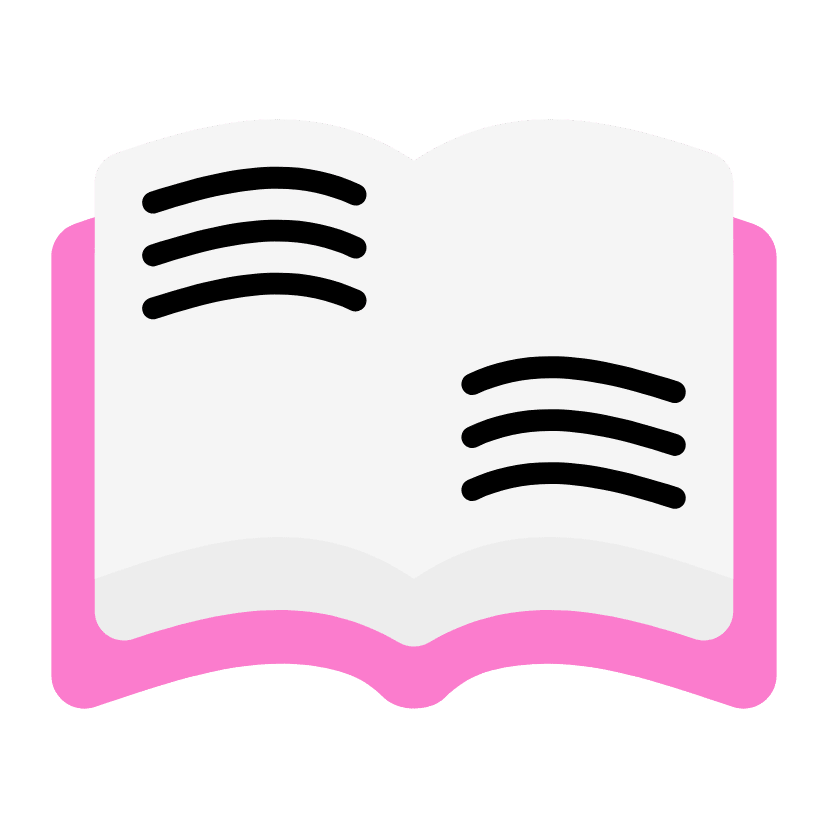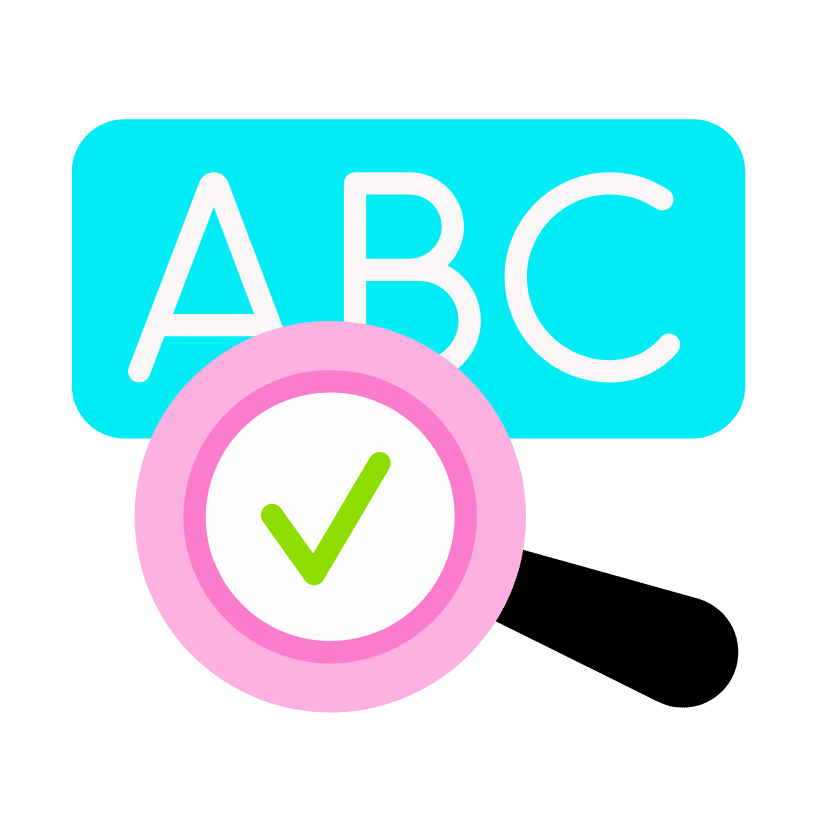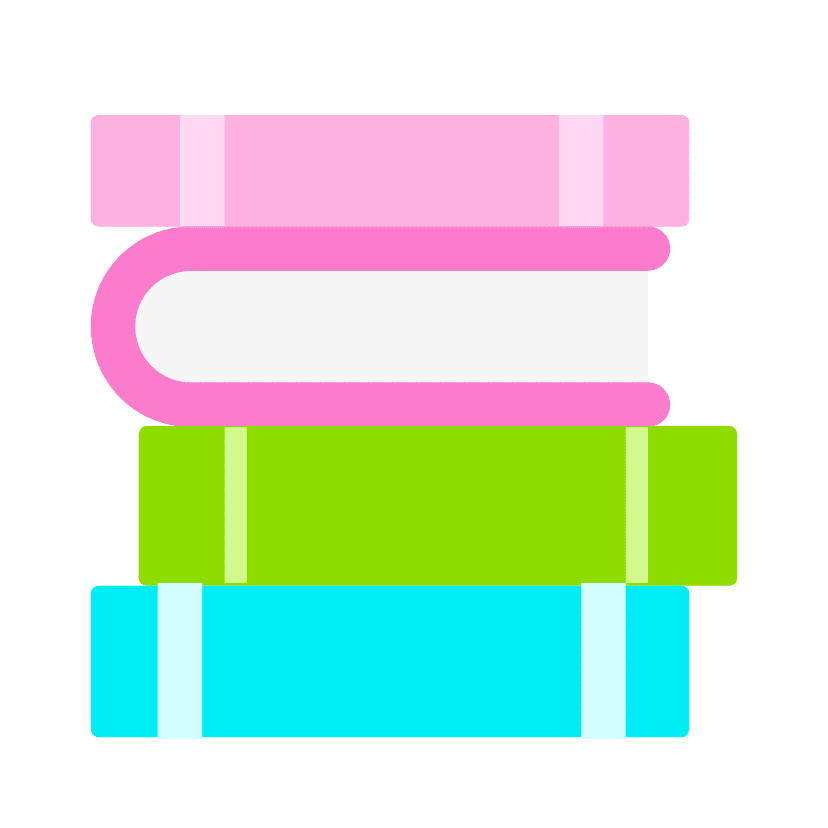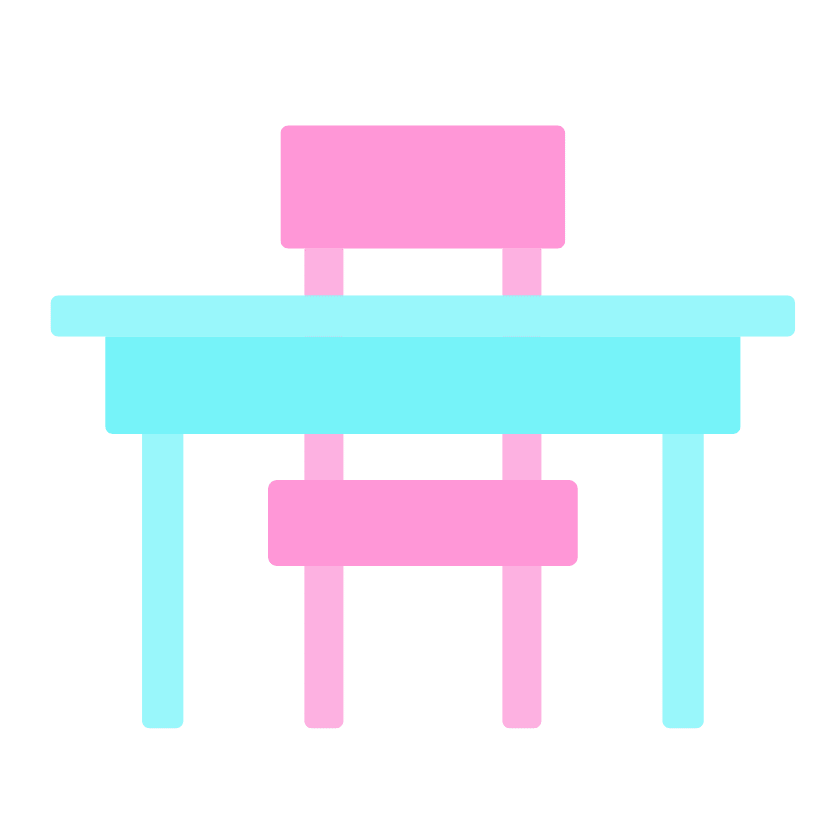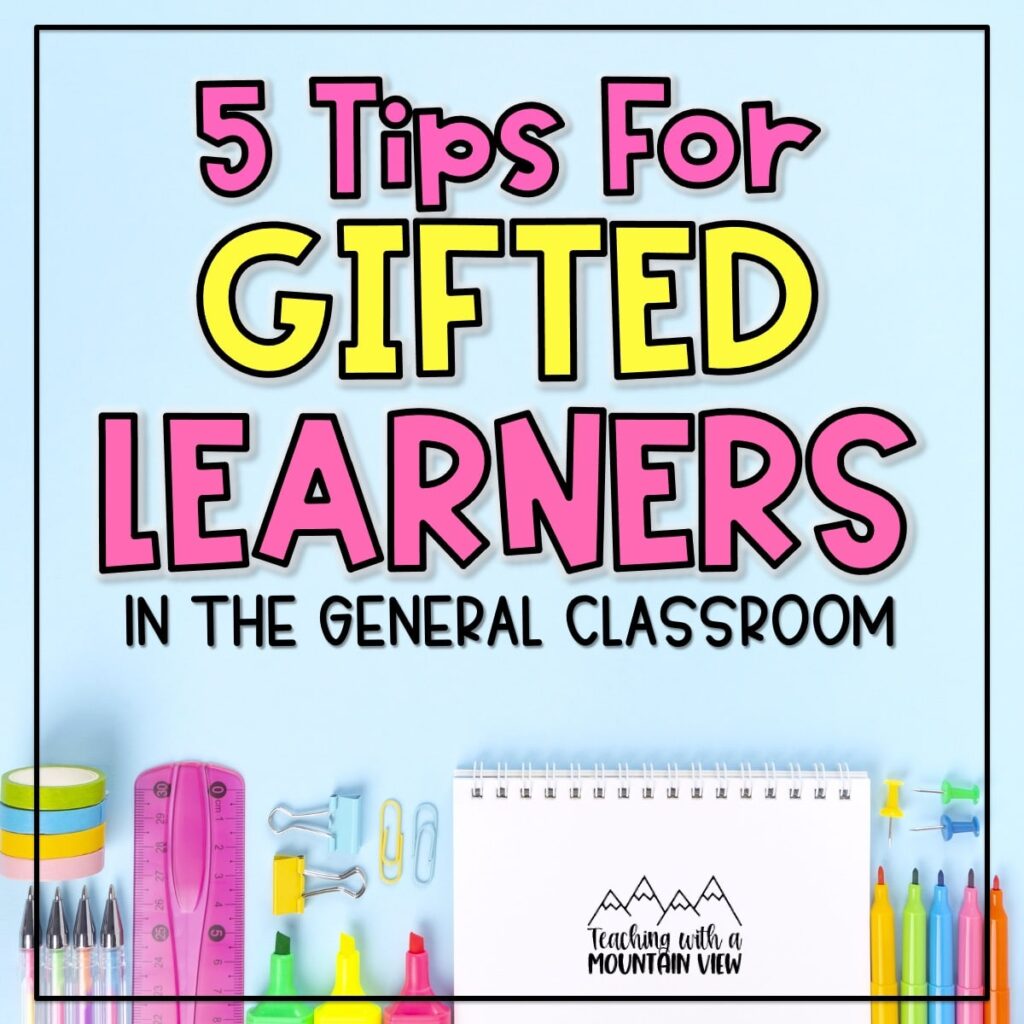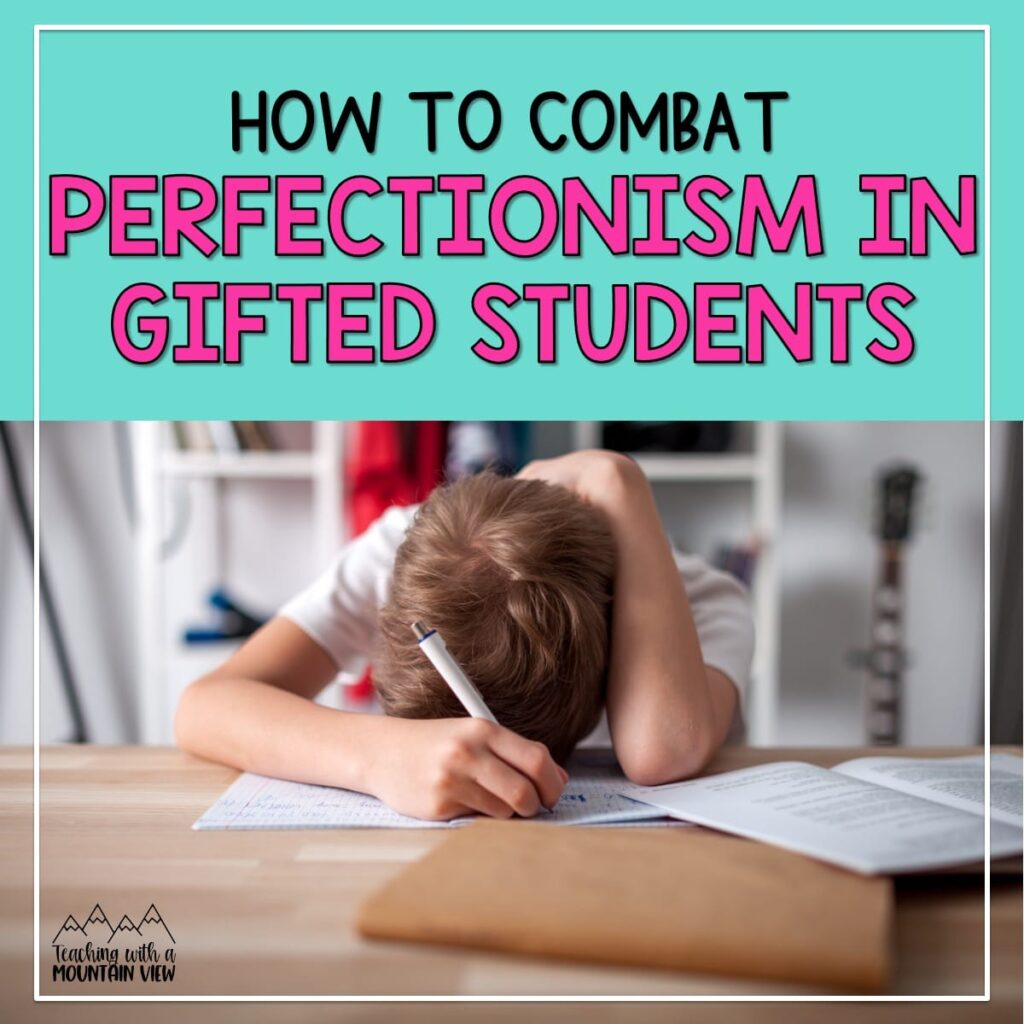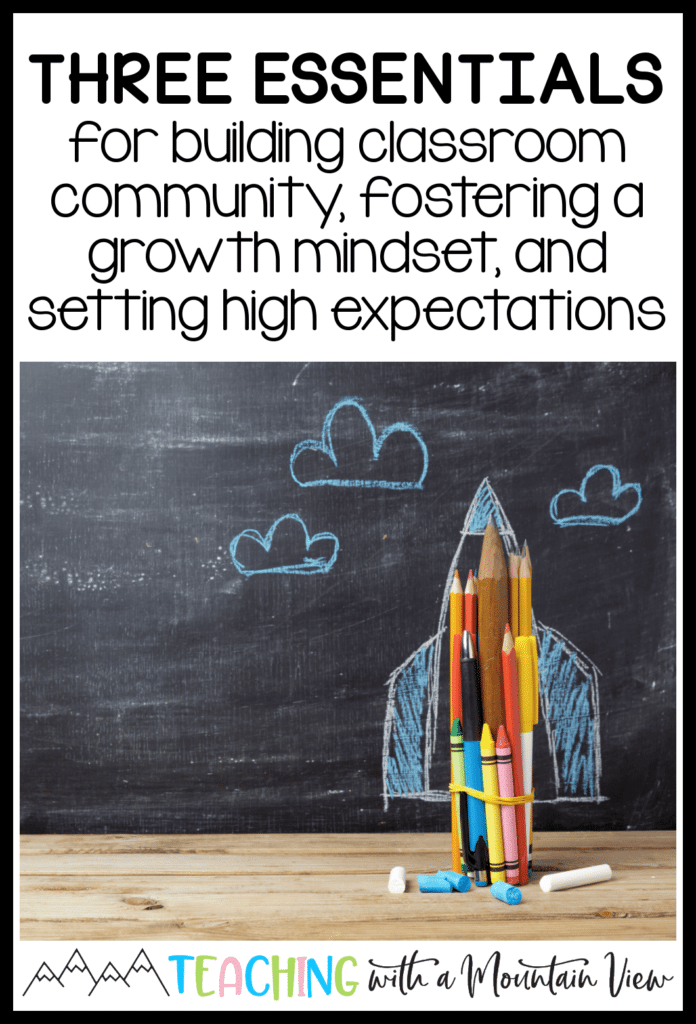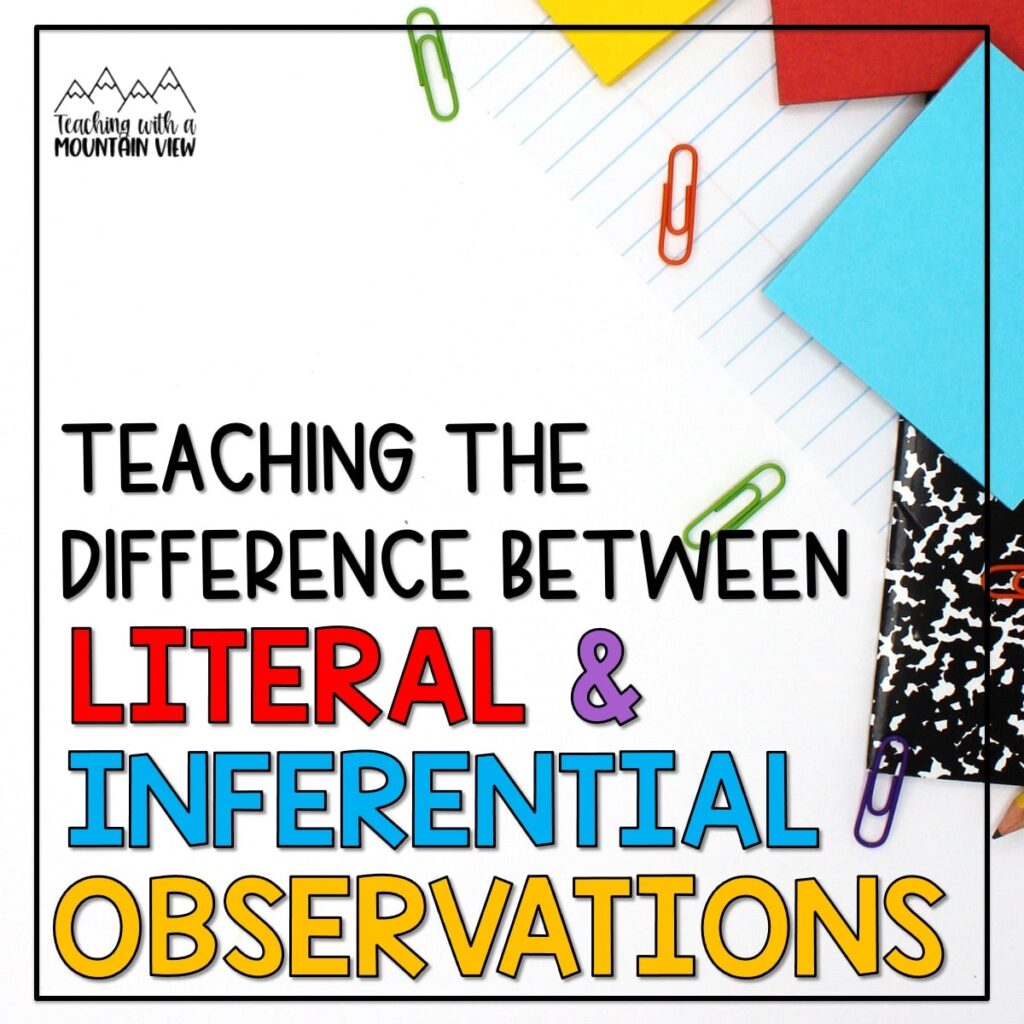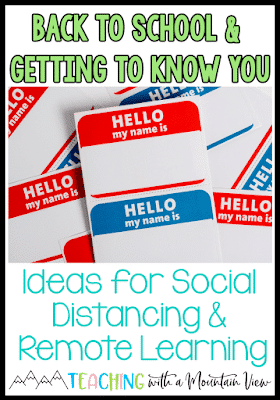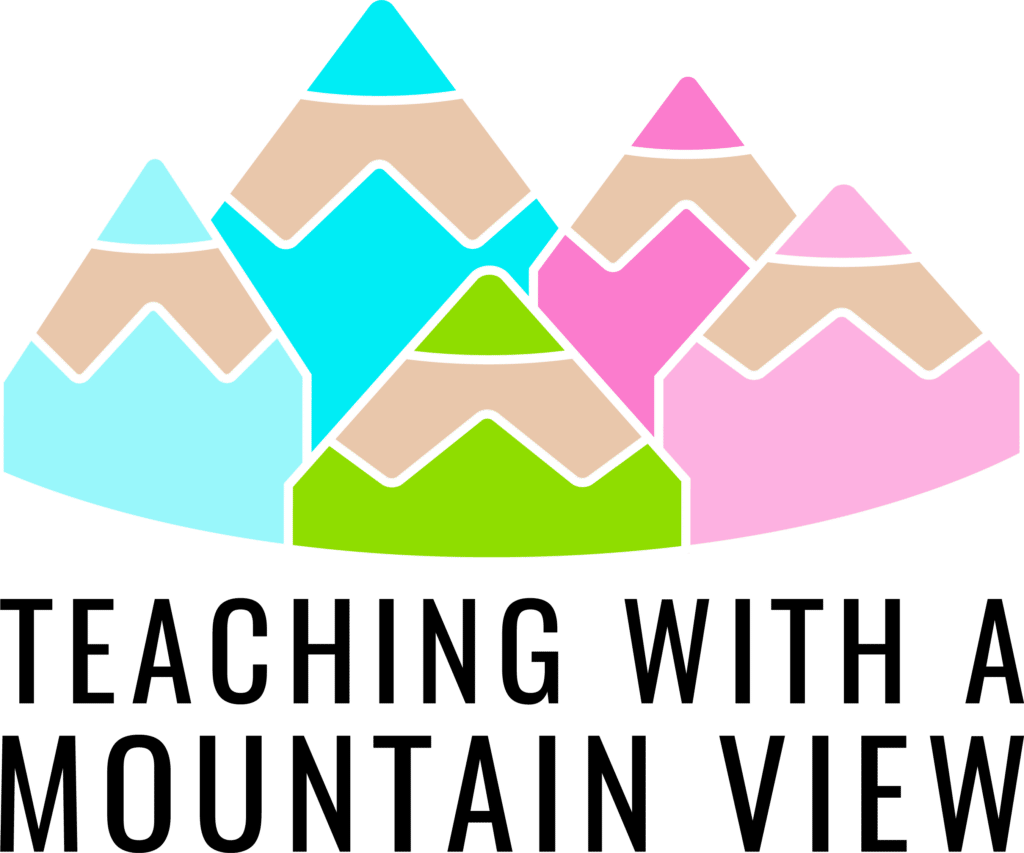Gifted Enrichment Tips for the General Education Classroom
By Mary Montero
Share This Post:
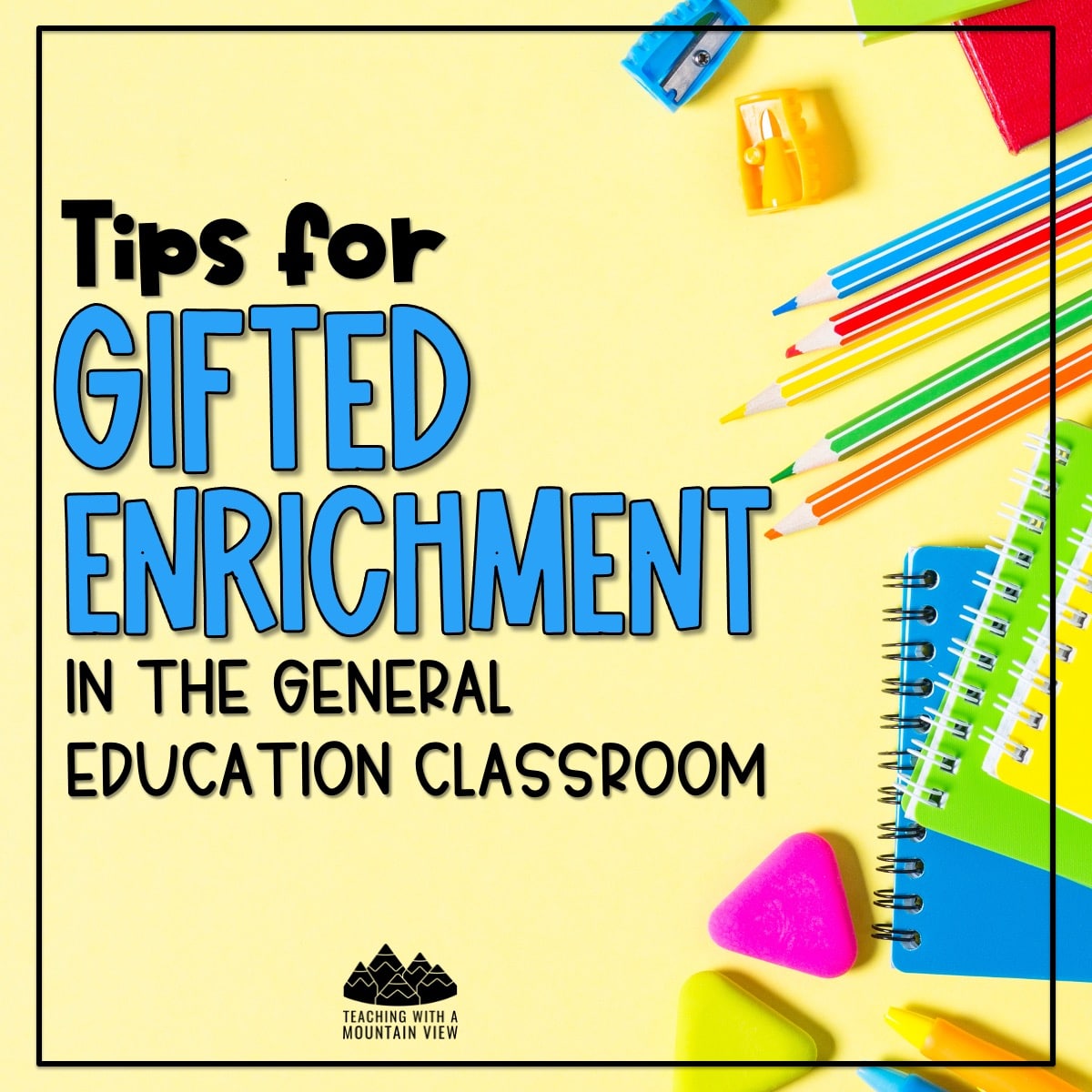
If you’re a general education classroom teacher, you know that every student in your class has unique needs and challenges. When it comes to gifted learners, their inquisitiveness and ability to grasp concepts quickly can keep you on your toes even more! That’s why we’re diving into the world of differentiation for gifted learners with these gifted enrichment tips.
We’ll explore effective strategies and resources to engage and challenge your gifted learners, ensuring they are engaged in the general education classroom just as much as they are when working with their gifted teachers. Whether you’re a seasoned educator or new to the concept of differentiation and trying to juggle it all, this post will equip you with tools you need to create an inclusive and enriching learning environment for all students.
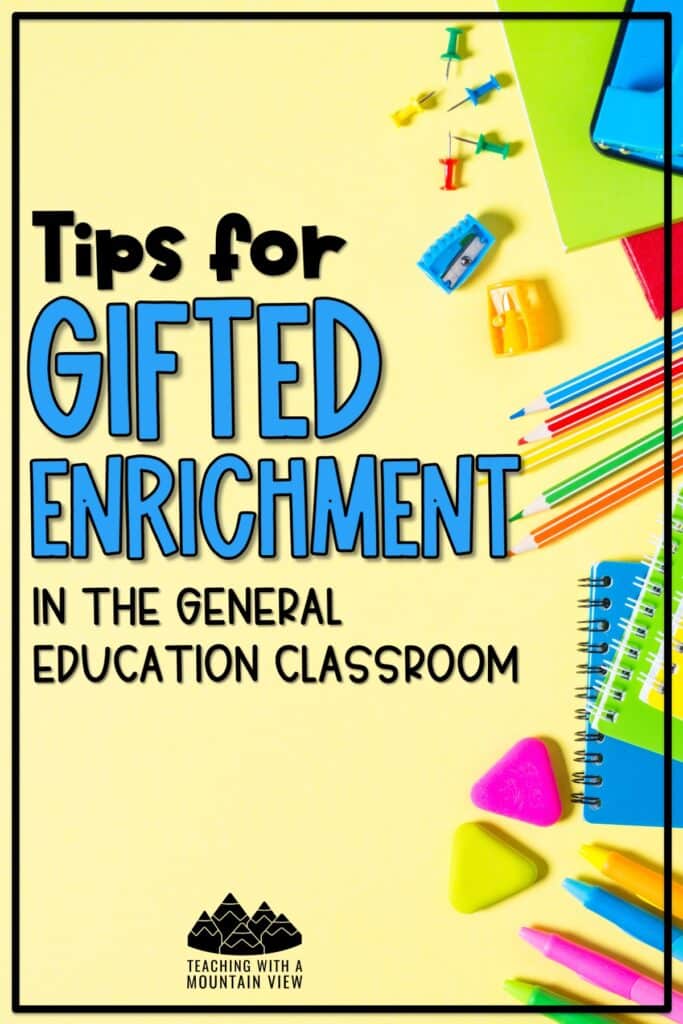
Before we dive into the gifted enrichment tips, remember… the goal of gifted education isn’t to provide these learners with more work. Instead, we’re working to provide a different level of work. The days of asking our gifted learners just to complete extra worksheets or be a teaching assistant are over!
Enrichment Binder
I wrote an entire post dedicated to Enrichment Binders. Read more here!
As a gifted facilitator, I provide each of my pullout students with an enrichment binder that they use in their general education classroom. This is a perfect resource for gifted students to use as an early finisher task or anytime their general education teacher needs ideas for help meeting their unique needs. Their classroom teacher can also use some of these tasks in small groups for ready-to-use differentiated activities. Remember, this isn’t just EXTRA work, this is DIFFERENT work and can be tailored to their needs based on preassessment scores, goals, and specific needs.
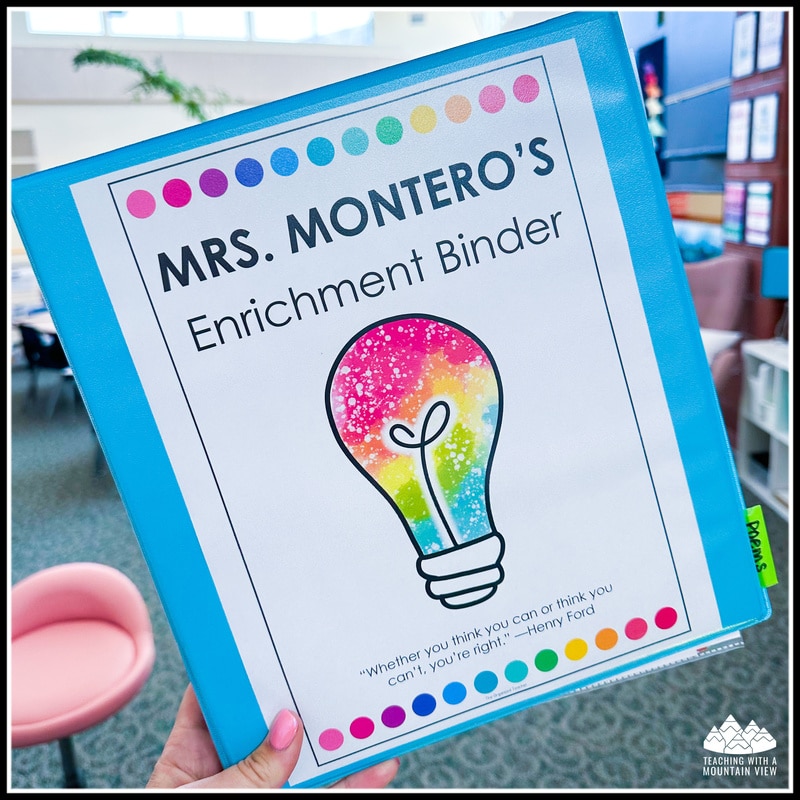
Here’s a sampling of some of the activities I include in my students’ enrichment binders, which I refresh monthly, or as needed based on what they’re working on.
Daily Writing Journal: Help your gifted learners build essential writing skills while incorporating a growth mindset, self-reflection, and character development. It’s the ultimate way to incorporate SEL with writing standards and SO important for our gifted students, who often struggle with perfectionism.
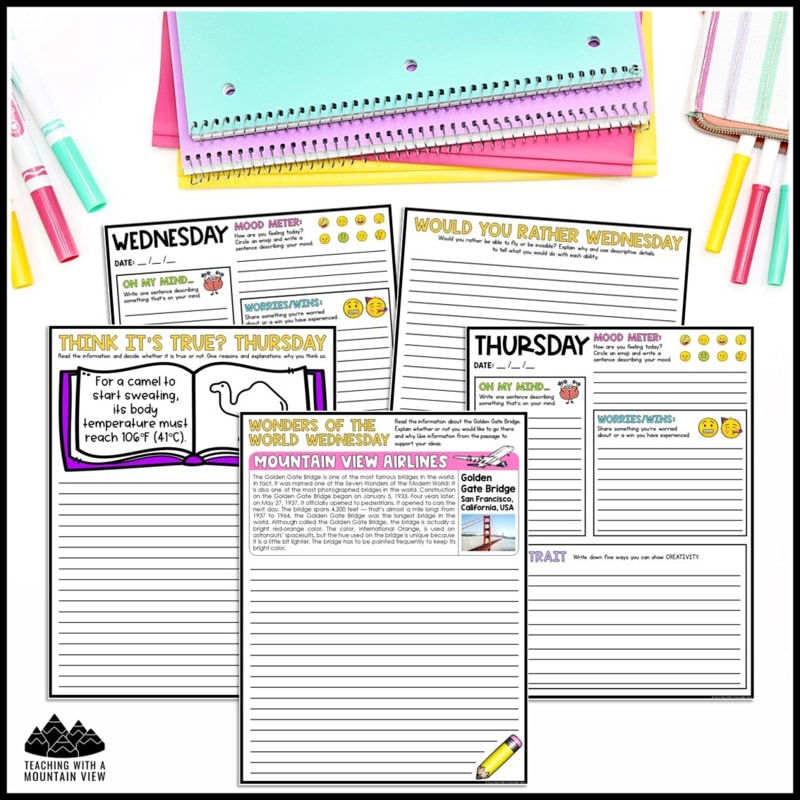
Beast Academy Puzzles: Beast Academy is one of my favorite tools for gifted students! It’s a challenging math program that’s designed to increase problem solving with engaging questions and puzzles. In addition to the digital tasks, you can print puzzles for students’ enrichment binders. If you’re looking to really stretch your gifted students’ thinking, this program is phenomenal.
Math Project of the Month: We almost always have a math project going because they’re my favorite way to boost learning power with their real-world connections, differentiation options, and collaborative learning opportunities. I can often sneak cross-curricular learning in with them, too! You can pull out and assign specific pages for each student to really hone in on each student’s needs. This is such an easy way to differentiate, and students rarely even realize they are working on separate pages! I have both skill-based and seasonal options.
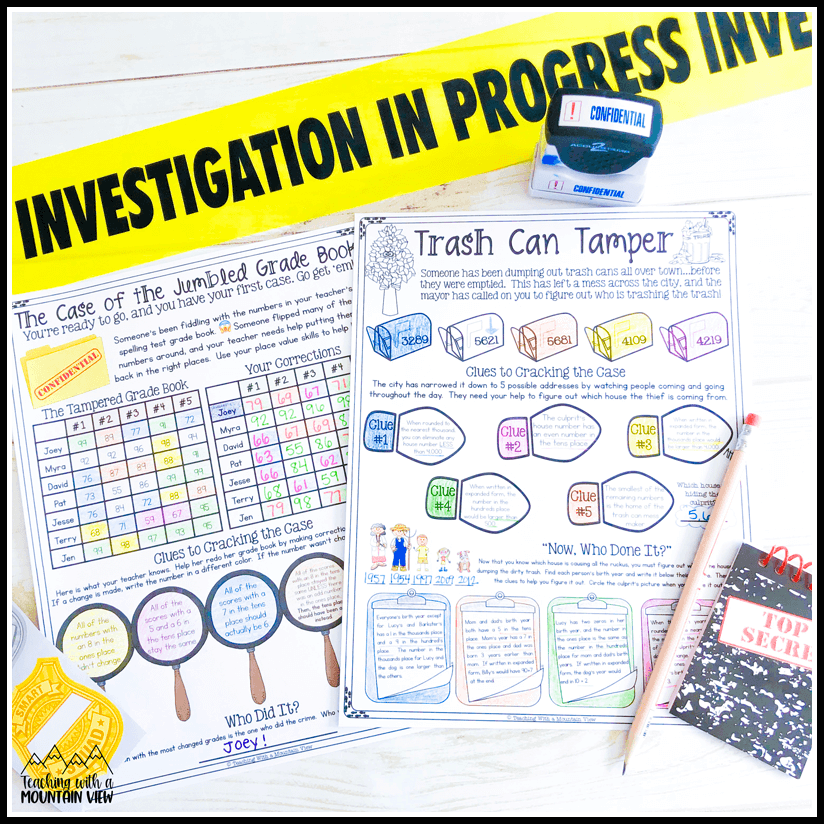
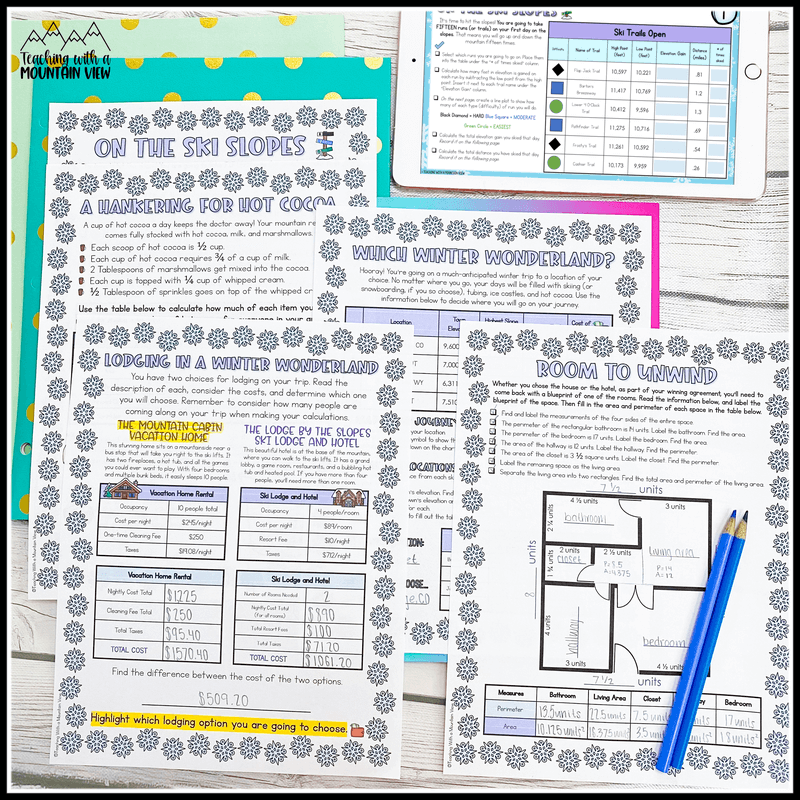
Error Analysis Tasks: So much of what students are asked to do in math is all about solving the problem and finding the answer. That’s important, but students need to look at math in different ways to truly grasp a complete understanding of concepts. If we only ask students to solve problem after problem, we end up with a very surface-level understanding of a concept. When we give them error analysis tasks, students are challenged to figure out the error, explain the error in their own words, rework the problem, and attempt to give advice to the student who made the mistake. That’s a lot of critical thinking going into one problem and really increases their depth of understanding! This error analysis bundle is a great place to start.
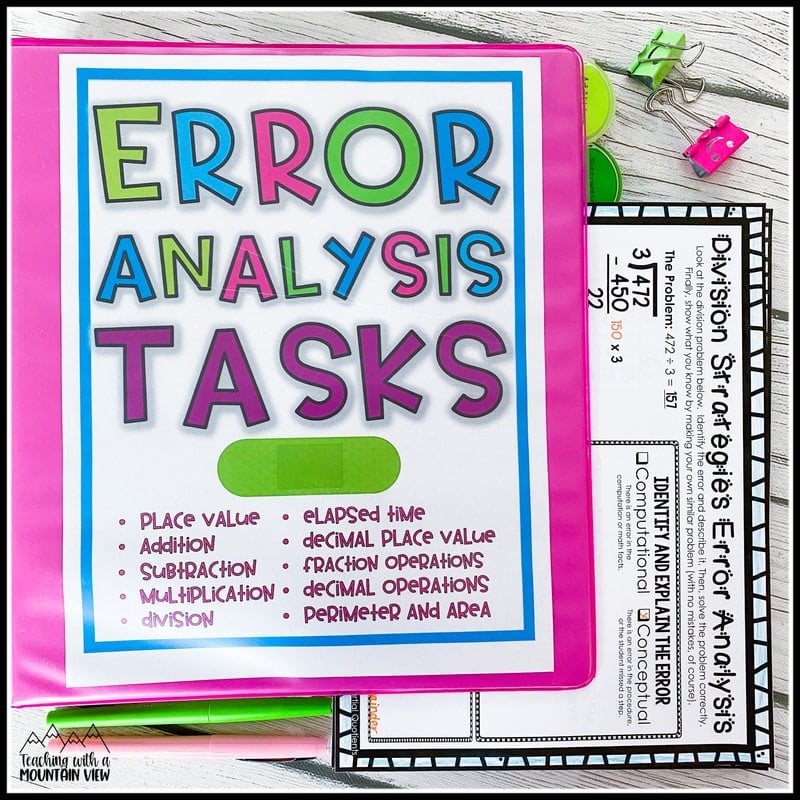
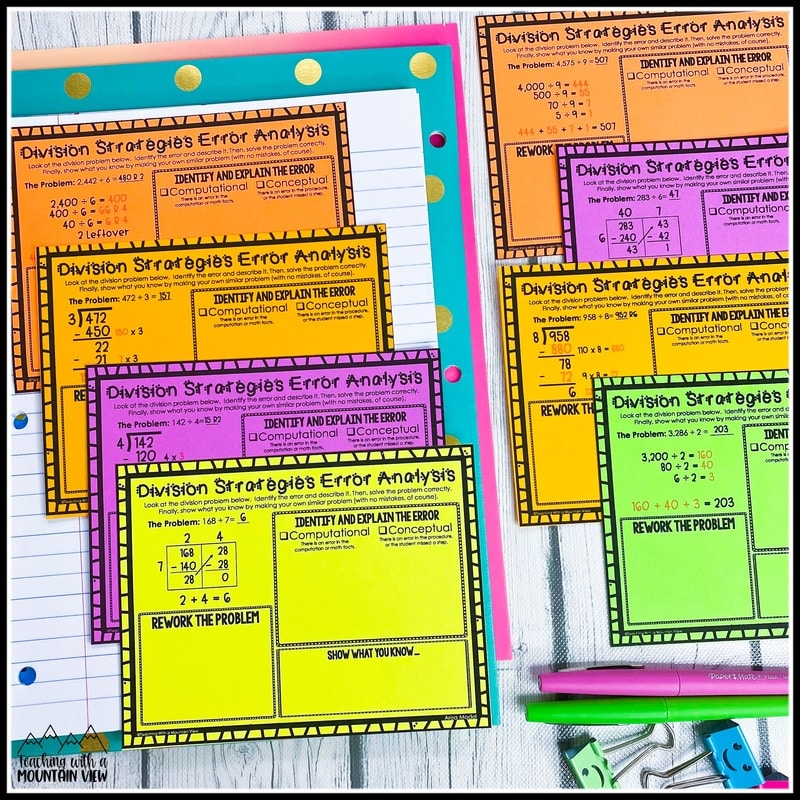
Word Study (Word Masters): I am a huge fan of Word Masters for gifted students. It teaches students robust, connected vocabulary through a series of Analogies. Wordmasters provides three lists of words throughout the school year, and we spend a lot of time focusing on learning those words and the connections between them. We dissect the word parts, find relationships, analyze the multiple definitions of each, etc. I LOVE seeing my students’ vocabularies SOAR using this program!
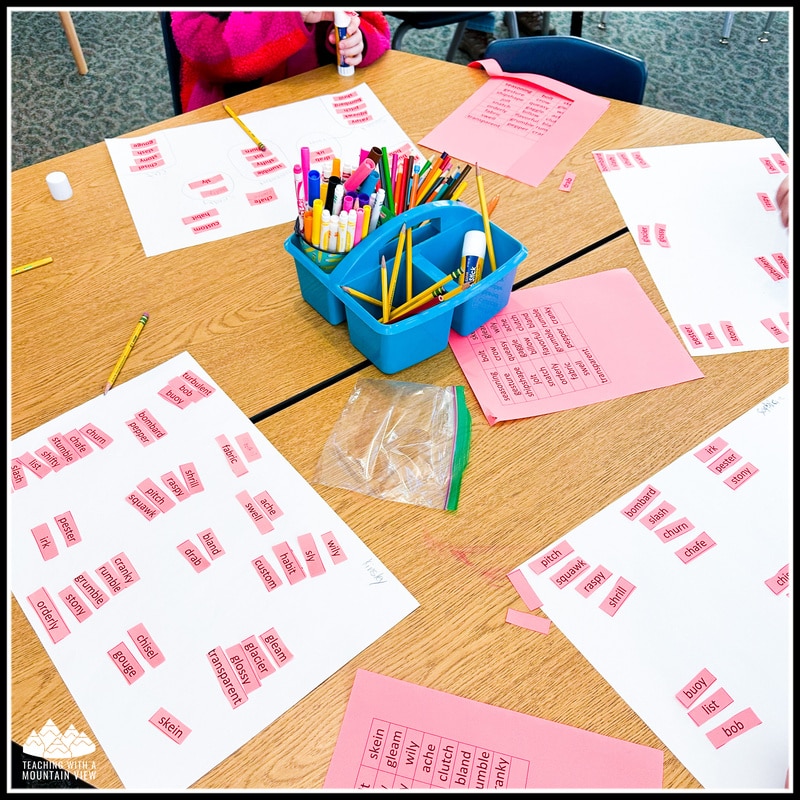
Verbal Reasoning Activities: Your students will dive into verbal reasoning and build critical thinking and problem-solving skills with these engaging activities! They are the perfect activity to help gifted students foster their verbal and critical thinking skills. You can also use these tasks as you familiarize students with the types of questions found on ability tests like CogAT.
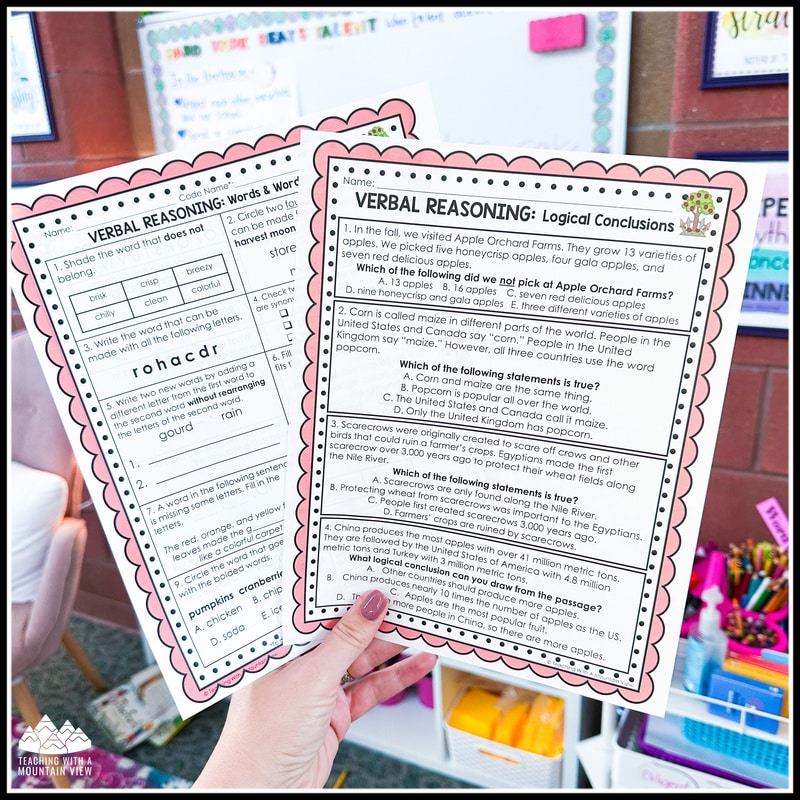
Poem of the Week: These poems are designed to help your students read and comprehend poetry with 40 original poems while also practicing fluency. Each poem is accompanied by thoughtful tasks to help students focus on their oral reading fluency and reading comprehension. The poems and comprehension questions range in complexity, making it easy to differentiate and pull the exact pages you need for each student.
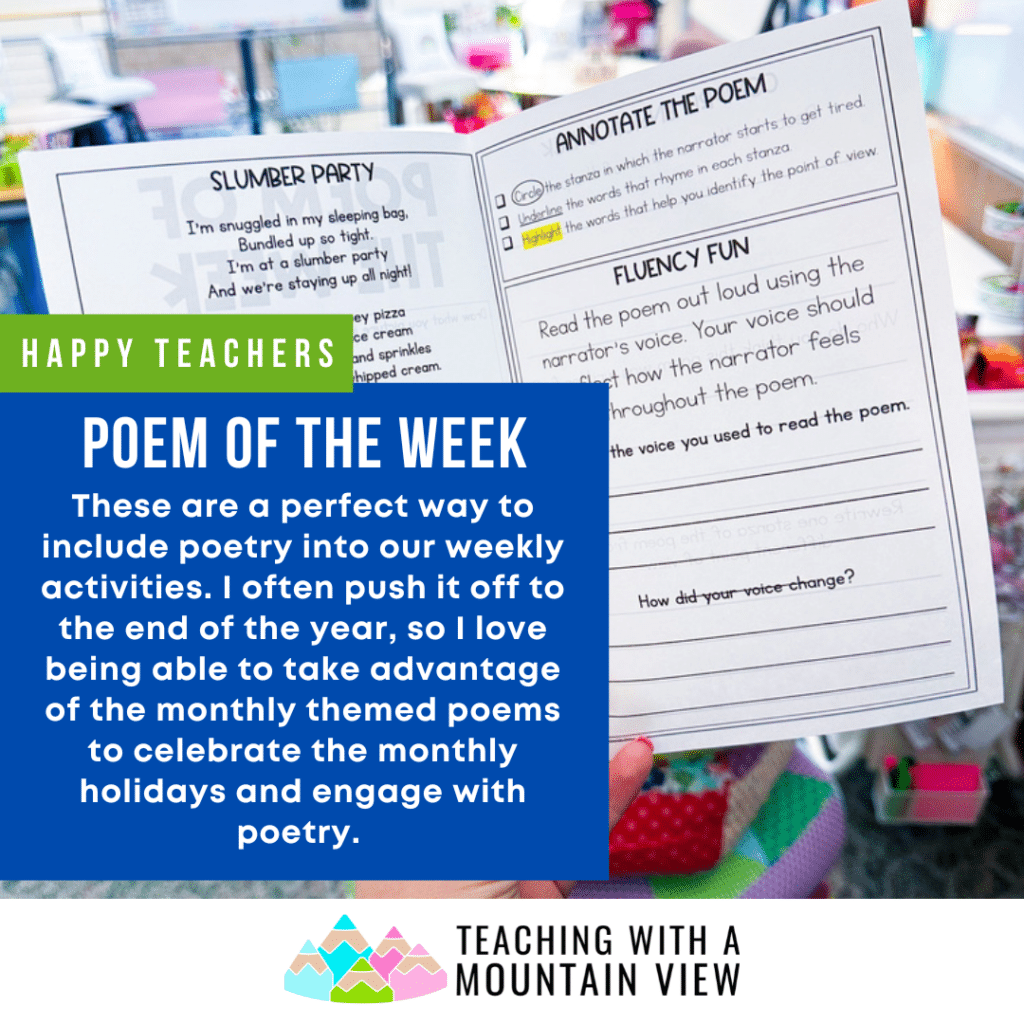
As the year progresses, I add a variety of tasks so it doesn’t get monotonous for students. I love adding choice boards, critical thinking brain busters, and logic puzzles.
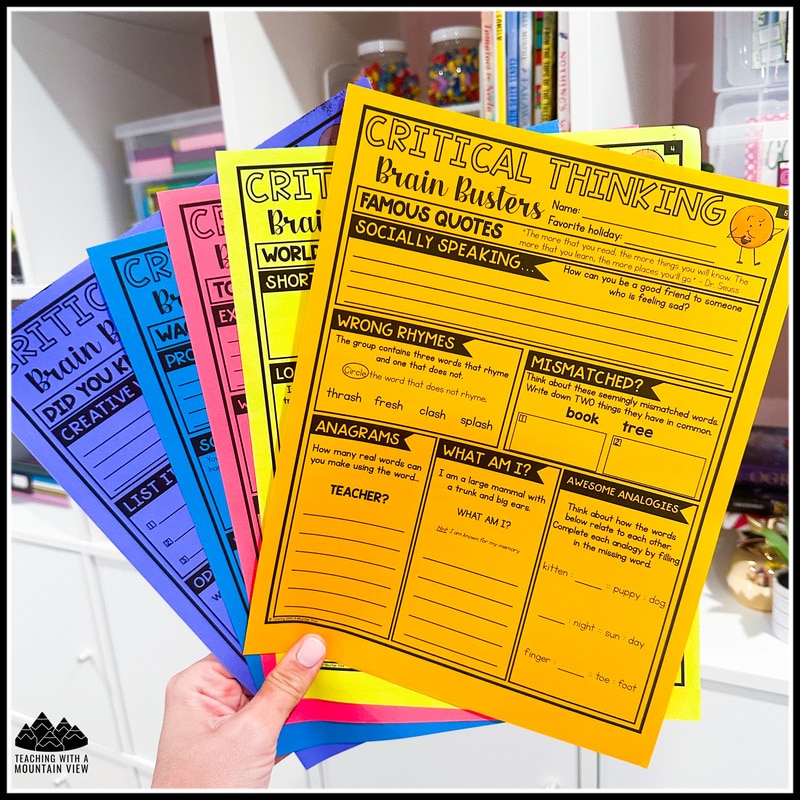
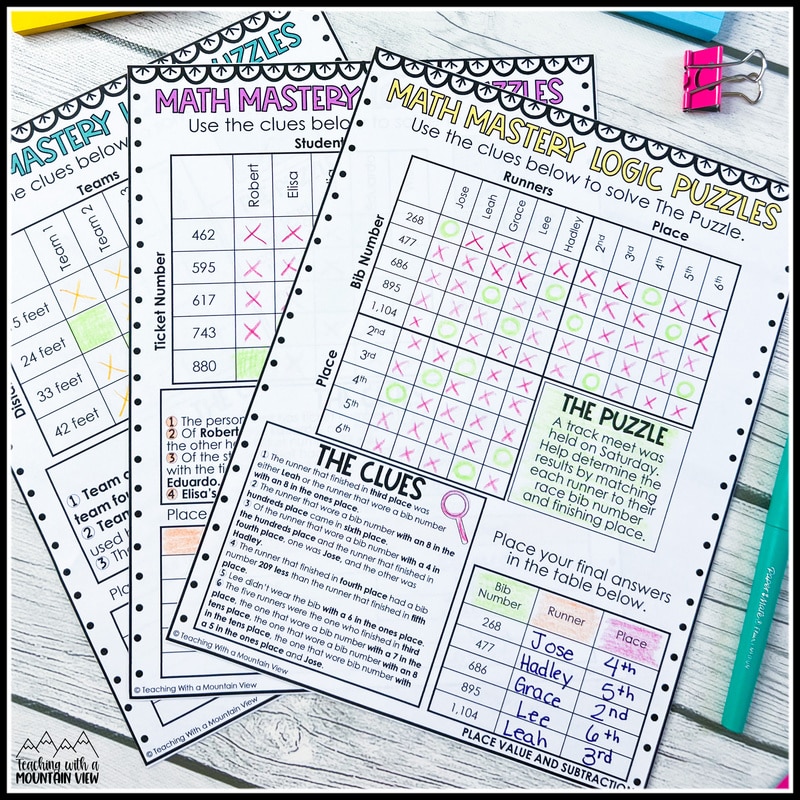
Gifted Math Recommendations
These gifted enrichment tips, resources, and activities unlock the potential of your gifted learners and help you provide personalized instruction to keep your students engaged, motivated, and continuously learning. I like to focus on problem solving, real-world applications, and project-based learning.
Hands-On Equations:
Continental Math League: Whether or not you subscribe to the yearly competition, classroom teachers can use the Continental Math League (CML) released items as a powerful tool to challenge and engage gifted students in math by providing them with a series of high-level, problem-solving opportunities that go beyond the typical classroom curriculum.
By The Numbers: I love making math relevant for my students, and these serve as a “digging deeper” assignment for students. I always add these to my enrichment binders to keep kids thinking about relevant, timely topics and all the math that goes along with them!
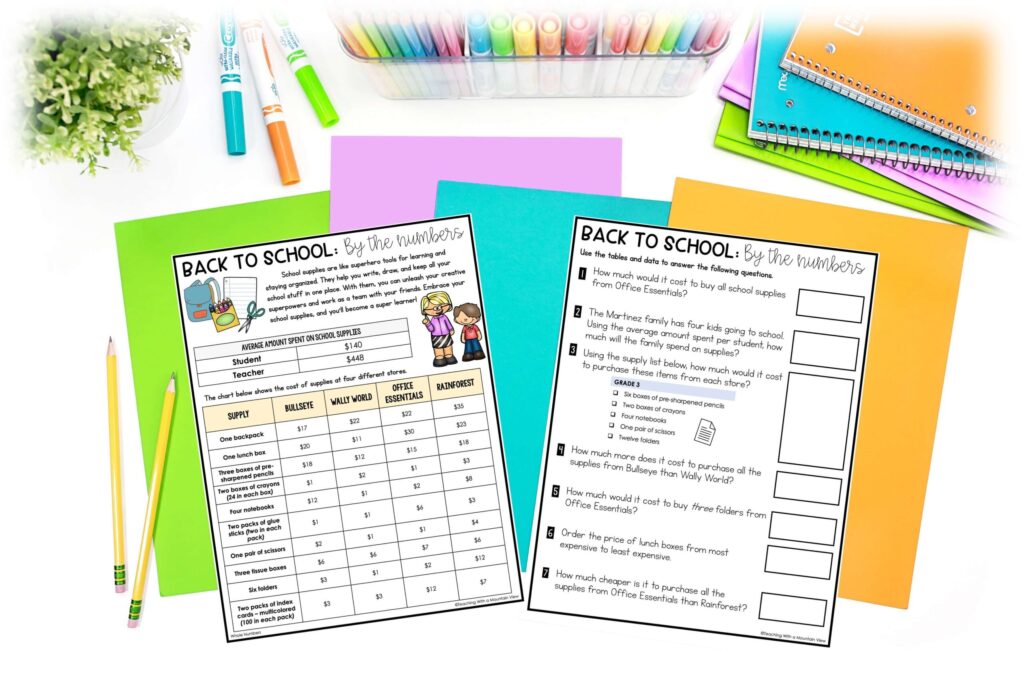
Online Resources for High-Ceiling Tasks: A high-ceiling task in math education is an activity that is accessible to all students but also offers deep exploration and complexity for gifted learners. These tasks allow gifted students to delve into advanced concepts, explore multiple solution paths, and engage in creative problem-solving. Here are some sites I regularly use for high-ceiling and other critical thinking tasks.
- Open Middle
- Nrich
- Three Act Tasks
Beast Academy: This is a paid resource but serves as a phenomenal independent study or small group enrichment program for gifted students. We’ve been using parts of it for a few years, and it’s simply phenomenal and so rigorous!
Gifted Literacy Recommendations
Gifted literacy learners require tasks that stimulate their imaginations, foster creativity, and deepen their understanding of language and literature. Literacy differentiation in the general education classroom should be about providing opportunities for gifted learners to explore and challenge themselves in meaningful ways. By implementing these tasks, you’ll create an inclusive and stimulating learning environment that allows gifted students to thrive.
Jacob’s Ladder: This is a great resource to use in the classroom – I often give general ed teachers Jacob’s Ladder to implement during reading groups. The Jacob’s Ladder Reading Program is a fantastic way to boost students’ reading and critical thinking skills. It uses a tiered questioning approach that starts with basic comprehension and gradually encourages deeper analysis and evaluation of the text. This method not only helps kids understand what they’re reading on a more meaningful level but also fosters those essential higher-order thinking skills that are key to success in all subjects. Plus, the program is super flexible, making it easy for teachers to tailor lessons to fit the needs of all their students
Junior Great Books: Junior Great Books is an awesome resource for bringing classic literature into the classroom in a way that really gets students thinking and talking. The program uses thought-provoking questions and group discussions to dive deep into stories, helping kids not only improve their reading comprehension but also develop critical thinking and communication skills. The best part? It’s not just about reading—it’s about connecting with the ideas in the text and with each other, which makes learning more engaging and fun for everyone involved. I use them regularly and add in supplemental activities in Grades K-2 and pick and choose texts from 3-5.
Novel Studies: When it comes to novel studies, I do give my gifted learners a more challenging novel, but the real magic happens when I also level up the discussion points. You can learn more about facilitating novel studies in these posts.
Reading Units: In addition to novel studies, I also teach thematic units. We read really rich picture books and spend a lot of time diving deeply into specific topics (inventors, the brain, trees, etc). We synthesize all of the information looking at impacts, perspectives, etc. I’m also a big fan of Depth and Complexity tasks.
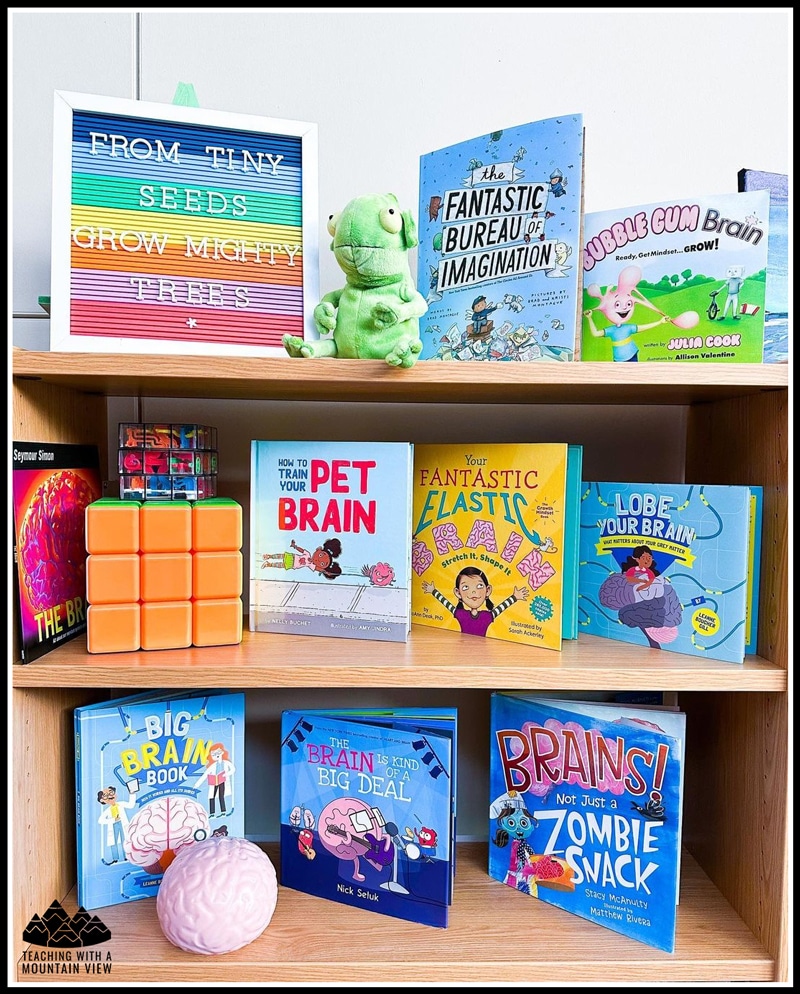
More Gifted Enrichment Tips
I hope this post has given you lots of gifted enrichment tips as well as ideas for resources that can provide additional practice, exploration, and enrichment beyond the regular curriculum. Remember, differentiation is about tailoring instruction to meet the unique needs of each learner. By implementing these tasks, you’ll create an inclusive and stimulating learning environment that allows gifted learners to flourish.
To learn more about the specific strategies and tools I use while working with gifted learners in the general education classroom, head to this 5 Tips for Gifted Learners in the General Education Classroom post. It’s full of even more gifted enrichment tips!
This post on How to Combat Perfectionism in Gifted Students is another excellent resource with gifted enrichment tips.
Mary Montero
I’m so glad you are here. I’m a current gifted and talented teacher in a small town in Colorado, and I’ve been in education since 2009. My passion (other than my family and cookies) is for making teachers’ lives easier and classrooms more engaging.

